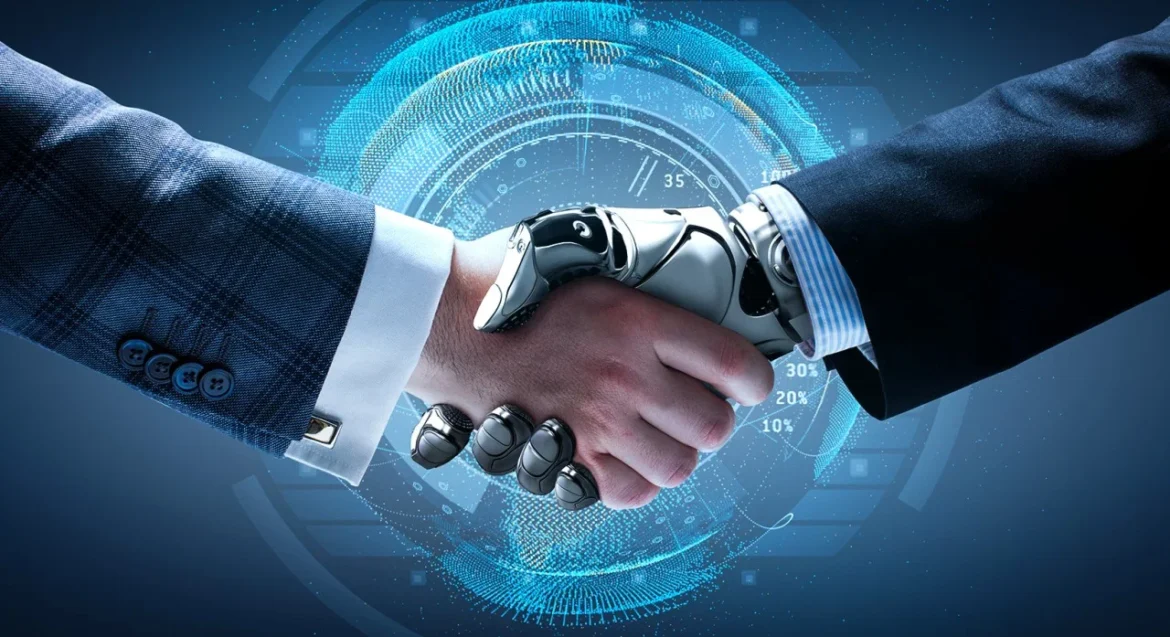In today’s fast-paced digital era, Artificial Intelligence (AI) has become one of the most powerful tools shaping human life. From voice assistants that help with daily reminders to advanced algorithms predicting diseases, AI has completely transformed the way we live and work. What was once considered science fiction is now a part of our everyday routine — making our lives smarter, simpler, and more efficient.
Let’s explore how AI helps improve human life and why it’s one of the most revolutionary technologies of the 21st century.
What Is Artificial Intelligence?
Artificial Intelligence (AI) is a branch of computer science that enables machines to think, learn, and make decisions like humans. It allows computers to analyze data, recognize patterns, and solve problems without constant human supervision.
The goal of AI is not to replace humans but to enhance human abilities and make tasks faster, easier, and more accurate.
Common examples of AI we use daily include:
Voice assistants: Siri, Alexa, and Google Assistant
Recommendation systems: Netflix, YouTube, and Amazon suggestions
Smart devices: AI-powered cameras, phones, and smart homes
Chatbots: Online customer support systems
1. AI in Everyday Life
AI quietly supports our daily routine in many ways.
Voice Commands: When you say, “Hey Google, what’s the weather?” — AI understands your voice and gives an instant response.
Navigation: Apps like Google Maps use AI to suggest the fastest routes by analyzing traffic in real time.
Personalized Experience: Netflix or Spotify uses AI to recommend movies or songs based on your preferences.
These simple yet powerful uses show how AI makes our daily life smoother and more personalized.
2. AI in Healthcare
AI is transforming the medical industry with innovation and precision.
Early Diagnosis: AI tools analyze X-rays, MRIs, and medical data to detect diseases like cancer at an early stage.
Virtual Health Assistants: Apps track your sleep, steps, and heart rate to suggest lifestyle improvements.
Drug Discovery: AI helps scientists discover and test new medicines faster.
Telemedicine: AI chatbots and virtual consultations make healthcare more accessible, especially in remote areas.
Thanks to AI, doctors can now make faster and more accurate decisions — ultimately saving lives.
3. AI in Education
Education is becoming smarter with AI-powered platforms.
Personalized Learning: AI apps track student performance and create customized lessons.
Language Translation: AI-based tools help students learn foreign languages easily.
Automation: Teachers save time as AI handles tasks like grading and attendance.
Virtual Tutors: Platforms like Duolingo or Coursera use AI to make online learning more interactive and adaptive.
AI helps create an education system that’s flexible, engaging, and accessible for everyone.
4. AI in Business and Workplaces
AI has changed how companies operate and make decisions.
Customer Service: Chatbots provide 24/7 support to customers, improving satisfaction.
Data Analysis: Businesses use AI to predict trends, manage risks, and understand market behavior.
Automation: AI automates repetitive tasks, allowing employees to focus on creative and strategic work.
Recruitment: HR teams use AI tools to screen resumes and identify the best candidates.
By integrating AI, businesses save time, cut costs, and improve productivity.
5. AI in Transportation
AI plays a major role in creating safer and smarter travel experiences.
Self-Driving Cars: Companies like Tesla use AI to power autonomous vehicles.
Traffic Management: AI systems analyze traffic flow to reduce congestion.
Navigation Apps: Real-time updates from AI make traveling easier and more efficient.
Safety Systems: AI helps prevent accidents by detecting driver fatigue and alerting the user.
AI-driven transport is not just convenient but also eco-friendly and time-saving.
6. AI in Finance and Banking
Financial institutions rely heavily on AI for speed, security, and smart decision-making.
Fraud Detection: AI algorithms detect unusual activity in transactions.
Customer Support: Virtual assistants answer queries and guide users.
Personal Finance: AI helps users manage expenses and investments through apps.
Credit Scoring: Banks use AI to assess loan eligibility faster and more accurately.
AI makes banking safer, faster, and more transparent for both individuals and businesses.
7. AI in Entertainment
Entertainment has become more personalized because of AI.
Streaming Platforms: AI recommends movies, music, and shows based on your taste.
Gaming: AI creates realistic characters and challenging gameplay.
Content Creation: AI helps artists, musicians, and writers generate creative ideas or even complete projects.
Social Media: AI filters content, suggests friends, and even detects fake news.
Entertainment powered by AI keeps audiences more engaged and connected.
8. AI in Agriculture
AI is helping farmers improve productivity and sustainability.
Crop Monitoring: AI drones monitor soil health and crop conditions.
Weather Prediction: AI predicts weather changes for better planning.
Smart Irrigation: AI systems use data to control water usage efficiently.
Pest Detection: AI identifies early pest attacks, saving crops from damage.
By using AI, farmers can produce more food while using fewer resources — ensuring food security for the future.
9. AI and Human Safety
AI also plays a key role in public safety and disaster management.
Surveillance: AI cameras detect unusual movements in public spaces.
Disaster Response: AI analyzes satellite data to predict floods, earthquakes, or fires.
Cybersecurity: AI detects suspicious online activity and prevents hacking.
Such applications make societies safer and more responsive to emergencies.
10. The Future of AI
The future of AI is full of possibilities — from advanced robots to smart cities.
AI will continue to evolve, combining with other technologies like blockchain, IoT, and quantum computing. However, ethical use and proper regulation are essential to ensure that AI benefits humanity rather than replacing it.
AI’s real power lies in collaboration between humans and machines — using intelligence to improve life, not control it.
Conclusion
Artificial Intelligence is no longer a futuristic dream — it’s today’s reality. From healthcare and education to finance and entertainment, AI has found its place in every corner of human life. It saves time, improves accuracy, enhances comfort, and opens doors to unlimited innovation.
As AI continues to grow, it’s making human life not only easier but also smarter and more meaningful. The goal is not just automation — it’s empowerment, creating a world where technology works hand-in-hand with humanity.


1 comment
I’m not sure how to explain this name so I’m not going to even try! bum555. There are a few good bonuses at the moment! Check them out. bum555